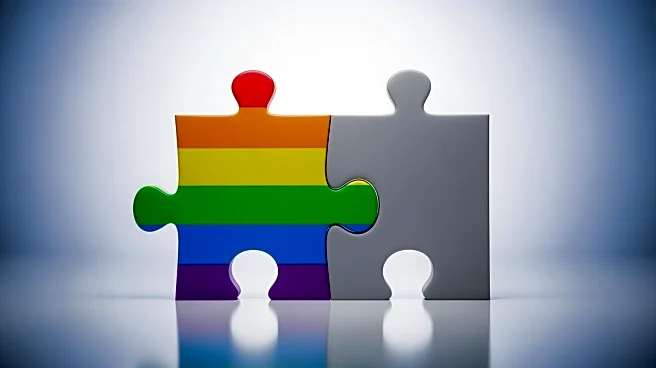What's Happening?
Hong Kong's Legislative Council has voted against a government-sponsored bill that aimed to partially recognize same-sex unions. This decision comes despite recent court rulings that have supported LGBTQ
rights in the city. The bill was intended to provide limited rights to same-sex couples, following a 2023 court order that required the government to establish a legal framework for recognizing same-sex partnerships by October 2025. The rejection has sparked renewed discussions about gay rights in Hong Kong, as the city aligns more closely with the central Chinese government. The Hong Kong government expressed disappointment but stated it would respect the legislature's decision and seek administrative means to protect the rights of gay couples.
Why It's Important?
The rejection of the bill is significant as it highlights the ongoing challenges faced by the LGBTQ community in Hong Kong. The decision may affect Hong Kong's global image, especially as an international financial hub that values diversity and equality. The lack of legal recognition for same-sex partnerships could lead to a loss of local and foreign talent, as many multinational companies prioritize inclusive policies. This development also underscores the tension between Hong Kong's legal system and its political alignment with Beijing, raising concerns about the erosion of freedoms and rights in the city.
What's Next?
The Hong Kong government must find a way to comply with the court order to establish a legal framework for same-sex partnerships. Legal experts suggest that the legislature should have proposed amendments to the bill rather than rejecting it outright. The lack of legal protections for same-sex couples may prompt further legal challenges and advocacy efforts from LGBTQ rights groups. The government may explore administrative measures to protect gay couples' rights, but the specifics of these measures remain unclear.
Beyond the Headlines
The veto of the bill reflects broader cultural and ethical debates in Hong Kong regarding traditional family values and the acceptance of LGBTQ rights. The decision may influence public opinion and activism in the city, as advocates continue to push for equality and inclusion. The situation also highlights the complexities of governance in Hong Kong, where political decisions are increasingly influenced by Beijing's policies.










